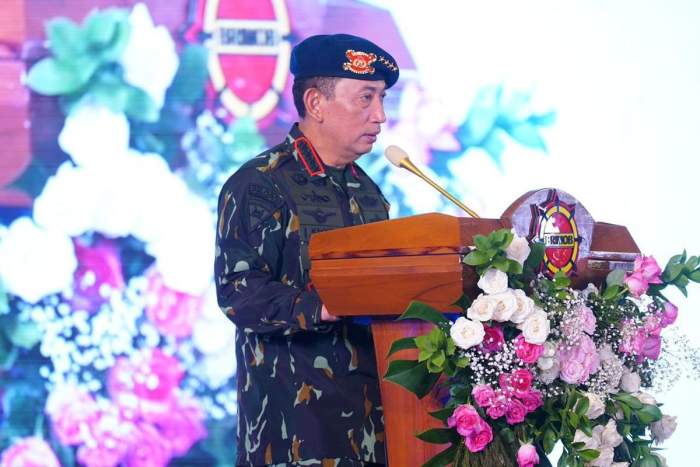Depok – National Police Chief General Listyo Sigit Prabowo revealed that the Indonesian National Police (Polri) has been monitoring at least 24 networks of armed criminal groups (KKB) in Papua. “We are still facing KKB groups, and currently there are 24 networks being monitored, and this number could continue to increase,” Sigit said in his remarks at the 80th Brimob Anniversary Ceremony at Brimob Headquarters, Kelapa Dua, Depok, West Java, Friday (14/11/2025).
According to him, the number may continue to grow in line with the evolving security dynamics in the region. “These KKB groups are present in almost every province and have been detected. They are part of the elements constantly pushing issues related to independence or a referendum,” he added.
He emphasized that the Mobile Brigade Corps (Brimob) holds a strategic role in maintaining public security and order, especially through its involvement in the Damai Cartenz Operation Task Force.
Balanced hard and soft approaches
The Police Chief called on Brimob personnel to maintain dual readiness: hard-approach capabilities such as jungle combat tactics, as well as soft-approach competencies through humanitarian engagement.
“You must always have hard-approach capabilities, including the ability to operate in jungle warfare, but you also need soft-approach skills so that humanitarian efforts can continue,” he explained.
According to Sigit, humanitarian approaches involve collaboration with local leaders, religious figures, and traditional elders.
He noted that maintaining this balance is essential to minimize potential casualties in the field while simultaneously building public trust.
In addition, the Police Chief addressed the need for additional personnel in Papua’s newly established autonomous regions (DOB) following the regional elections and inauguration of local officials. He instructed his ranks to regularly evaluate personnel needs.
“Please continue evaluating the existing needs so we can truly deploy optimal personnel, especially in these new regions, which have their own unique security challenges,” he concluded.

